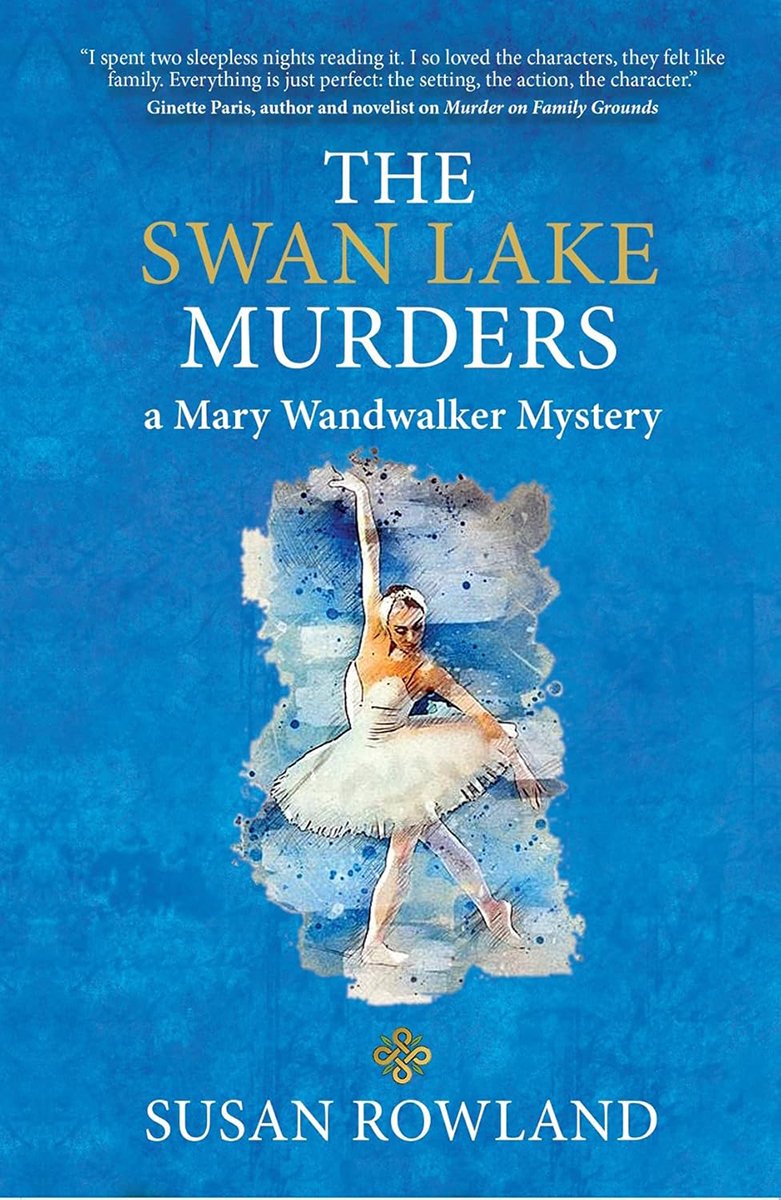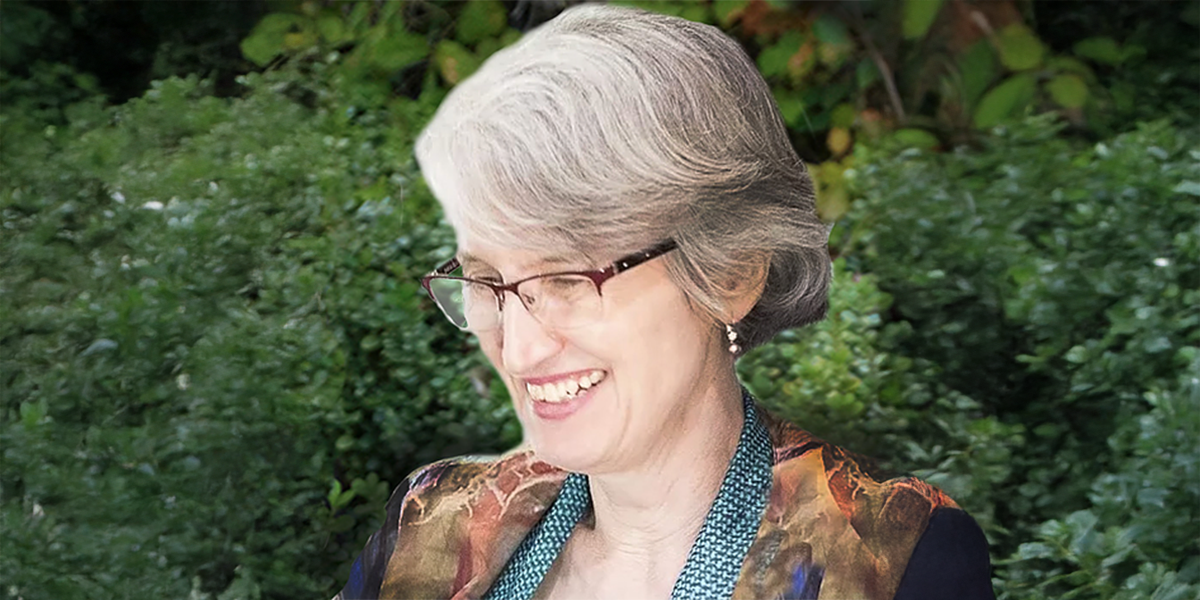PHOTO: “Susan Rowland, celebrated author and Jungian scholar, reimagines mystery fiction with powerful heroines and profound cultural themes.”
Redefining Marginalised Women As Heroes
Susan Rowland discusses her inspiration, Jungian influences, feminist themes, and the challenges of transitioning from academia to crafting rich, thought-provoking mystery novels that champion female resilience and cultural renewal.
Susan Rowland is a luminary in the realm of mystery fiction, seamlessly blending her profound academic insights with her storytelling prowess to create narratives that both intrigue and inspire. With her latest novel, “The Swan Lake Murder,” set to captivate readers from the 1st of June 2025, she delivers yet another masterpiece that delves into the depths of human emotion and the supernatural. Her works are a testament to her brilliance, exploring themes of feminine heroism and cultural renewal through a rich tapestry of Jungian psychology and feminist theory.
In an era where literature seeks to redefine boundaries, Susan Rowland stands as a beacon, championing stories that elevate marginalised women as heroes. Her unique approach to character creation, exemplified by her triple goddess detective, offers readers a refreshing perspective that challenges conventional narratives. “The Swan Lake Murder,” along with her other titles like “Murder on Family Grounds” and “The Alchemy Fire Murder,” showcases her ability to weave complex tales that resonate with both intellectual depth and emotional authenticity.
Join us as we delve into a fascinating interview with Susan Rowland, where she shares her inspirations, challenges, and the transformative power of storytelling. Her journey from academia to the captivating world of mystery fiction is not just an exploration of genre, but a quest to unearth the heroism in every enigmatic tale she crafts.
Susan Rowland is a masterful storyteller whose novels redefine heroism, blending profound intellectual depth and captivating mystery narratives.
How does Jungian psychology shape the character of Mary Wandwalker in your mystery novels?
Mary Wandwalker is a complex character who has made mistakes, and now quests to find greater meaning. Forced to engage with the world, she discovers her deep intuition and courage enabling her to go beyond everyday experience. Mary balances on the cusp of unconscious marvels. She is so much more than the overlooked feminine, just possibly – a goddess (as we all are). Jung gave me a way of making her real.
“Mary Wandwalker is so much more than the overlooked feminine, just possibly – a goddess (as we all are).” – Susan Rowland
What inspired you to create a detective embodying the triple goddess archetype in Murder on Family Grounds?
Robert Graves is credited with popularizing the notion of the triple goddess as maiden, matron and crone. He saw these moon phases as roles for women that would keep them on the margins. What fun to reverse his misogyny! The books see this lunar form of the goddess as models of heroism that can enhance human society through mystery fiction. After all, great writers have given us the older spinster as a formidable detective. And my Anna is not a maiden because she has never had sex. Rather as a survivor of trafficking she grew up without love and is trying to find her way without the moral training of childhood and family. Such survivors are heroes. Finally, my Caroline is motherly, but also suffers from chronic clinical depression. As a hero she reverses the sidelining of mental illness in life and in fiction. Not only is making a good life in such circumstances intrinsically heroic, it also develops undervalued qualities of resilience and empathy.
How do themes of family trauma and patriarchal legacy influence the narrative of Murder on Family Grounds?
In the story we meet three women who have lost, or are about to lose, or have never had, a family. They are Mary Wandwalker who is fired from the nearest thing to a family – her job – after 40 years, Caroline, whose husband loves another woman, and Anna, formerly trafficked and trapped in a crime ‘family.’ Patriarchy rules in the aristocratic Falconer family that takes primogeniture for granted. But what happens if the son is gay? The compromises forced on gay sons interact with a criminal underworld where patriarchy is dark indeed.
In what ways does The Alchemy Fire Murder explore the element of fire within Jungian symbolism?
Like water in The Sacred Well Murders, earth in Murder on Family Grounds and air in The Swan Lake Murders, fire here stands for a quality innate in humans, and in nature. These elements are archetypal because they are positive for human wellbeing as well as potentially destructive. Fire can be love or rage. It can cook a nutritious meal or burn down a hospital. Where the planet has been terrorized by human greed, fire becomes the climate’s revenge and puts relationships and communities at risk, as in this novel set in England and California.
How does your academic background in Jungian studies inform your approach to writing fiction?
I care about Jungian psychology because it places creativity at the heart of being human. It means that living is a quest for meaning both made and found. Novel writing is my quest to receive and translate the energies from the more-than-personal psyche. The novels know more than I do. Writing opens archetypal windows to the cosmos; the characters tell me what they need.
What challenges did you encounter transitioning from scholarly writing to crafting mystery novels?
I expected to find writing fiction difficult. I was not prepared for how endlessly, hugely challenging it is. Scholarly writing has rules, novel writing has demands. The tension between what I might wish to say from my puny conscious ego and what stories stretches me to the limit and more. I wrote three complete drafts before one was close to being publishable.
How do you integrate Jungian Arts-Based Research methodologies into your creative writing process?
JABR means writing from the belief that the unconscious knows more than consciousness and has connections beyond the individual. Therefore we must allow the spontaneity of the psyche to be a full partner in the process.
What role does feminist theory play in reimagining marginalized women as heroes in your novels?
Feminism uncovers and questions the impact of centuries of patriarchy. Any art practice can look again at who is represented and from what partial perspective. By choosing an older woman or crone, a sick woman, and a formerly trafficked woman, I aim to look at the price patriarchy exacts. I make a point of showing that patriarchy also oppresses men.
Crucially, I invoke the cozy mystery in my stories that are far from typical of that genre. For the cozy ends with a positive affirmation of a (usually feminine centered) community. My stories do not depict violence but its consequences. I aim for a comic mode, partly in humor, and in the sense that characters end so much better than they started – and not just the three detectives. My feminism believes in happy endings.
How has your relocation from the UK to the US influenced the settings and themes of your stories?
James Joyce famously said that the way to Ireland was via Holyhead, where he and others departed. Moving to the US probably enabled me to write about 21st century England, although The Alchemy Fire Murder, has the murder and much action in California.
What advice would you offer aspiring authors aiming to blend academic insights with creative storytelling?
Do it if you really have to. I have to. I will be writing fiction for the rest of my days. Don’t imagine that it will be easy.
EDITOR’S CHOICE
Susan Rowland masterfully intertwines myth, psychology, and mystery, crafting stories that are both intellectually profound and emotionally compelling.



